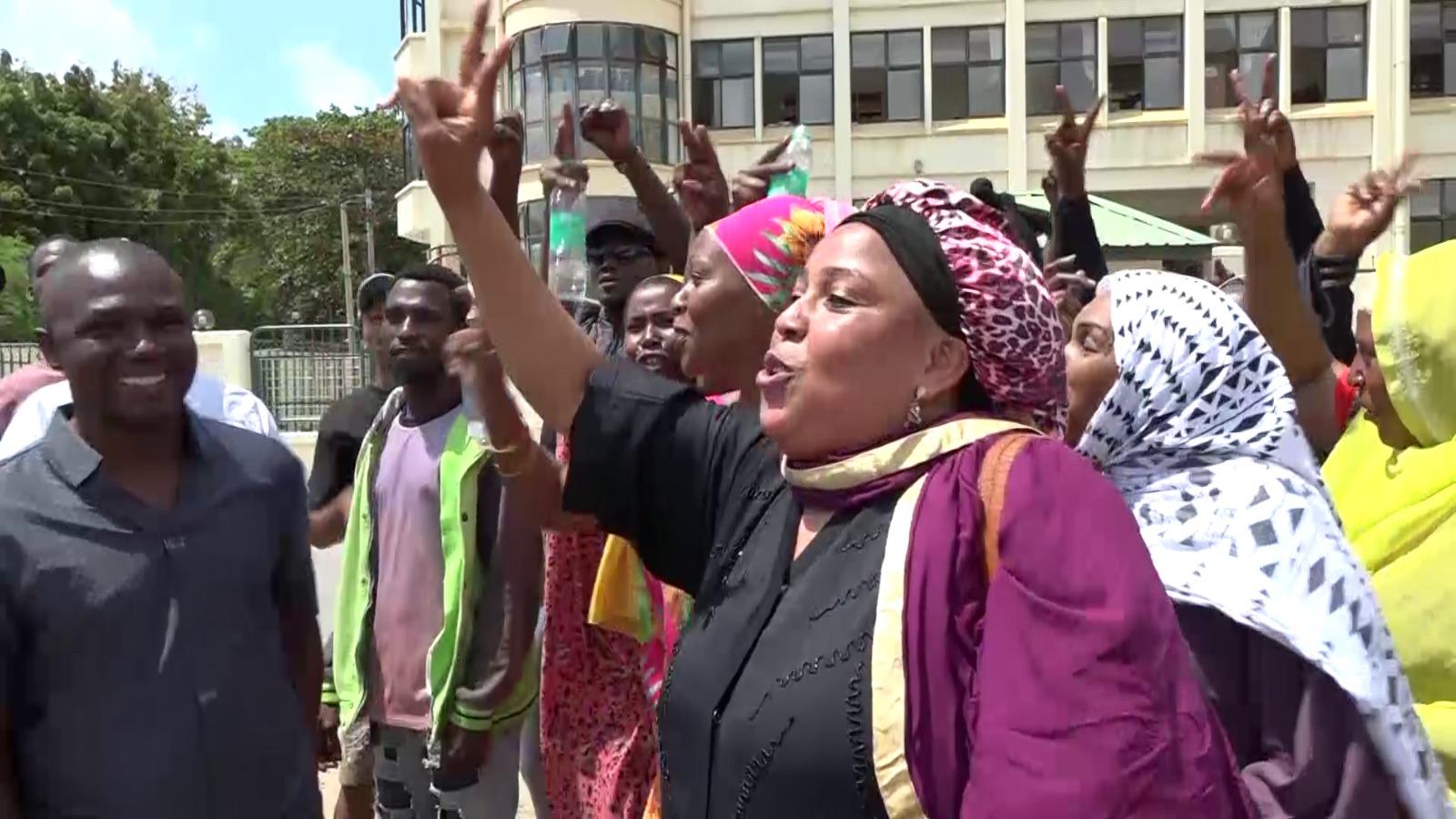 A section of Kilifi County residents gather at the Malindi law court premises in solidarity with three youth sued by Kenya Roads Board Chairperson Aisha Jumwa over a controversial audio clip depicting her insulting one of the defendants in the suit back in 2016. Photo by Ben Okweingoti
A section of Kilifi County residents gather at the Malindi law court premises in solidarity with three youth sued by Kenya Roads Board Chairperson Aisha Jumwa over a controversial audio clip depicting her insulting one of the defendants in the suit back in 2016. Photo by Ben Okweingoti
By Ben Okweingoti
Kenya Roads Board Chairperson Aisha Jumwa has suffered another legal setback after a Malindi court declined her request to block residents from sharing a controversial nine-year-old audio clip in which she is heard hurling insults at a constituent.
The audio, recorded in 2016, allegedly captured a phone conversation between Ms Jumwa and Resnson Kombe Yeri. She has sued Mr Kombe alongside Idd Salim and Matano Maingi, accusing them of maliciously circulating the clip on WhatsApp groups and other social media platforms to damage her reputation.
During a virtual session on Wednesday, Malindi Principal Magistrate Joy Wesonga dismissed Ms Jumwa’s plea for temporary orders, instead scheduling the case for inter partes hearing on September 10, 2025.
This followed an earlier ruling by Resident Magistrate Irene Thamara on August 13, 2025, who also declined to certify the matter as urgent.
“It is hereby ordered that there is no urgency in the application, and it should be served for inter partes hearing on September 3, 2025, court No. 3,” Ms Thamara ruled.
On Wednesday, defence lawyer Lucky Mnyazi sought three days to file replying affidavits, which the court granted.
Outside the virtual session, supporters of Kilifi Governor Gideon Mung’aro—who attended in solidarity with the defendants—accused Ms Jumwa of attempting to use the courts to silence critics, vowing to stand by the three respondents.
Notably, in 2021, then Malindi Resident Judge Reuben Nyakundi had granted Ms Jumwa a temporary injunction barring the publication of the same clip, but the case was later dismissed after her lawyers failed to prosecute it.
In her latest affidavit, Ms Jumwa admitted uttering the words in retaliation to remarks by Mr Kombe but claimed the recording was selectively circulated for political gain.
She alleged that Mr Salim and Mr Maingi were deliberately sharing the clip to portray her as abusive and unfit to contest the Kilifi governorship in the 2027 General Election.
Her lawyer, Alfred Omwancha, maintained the application was “extremely urgent,” warning that continued circulation of the clip could cause “irreparable loss and damage” by misleading the public into believing the recording was recent.